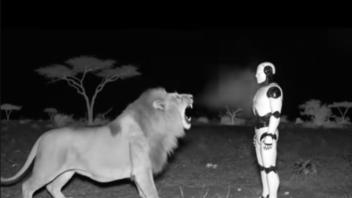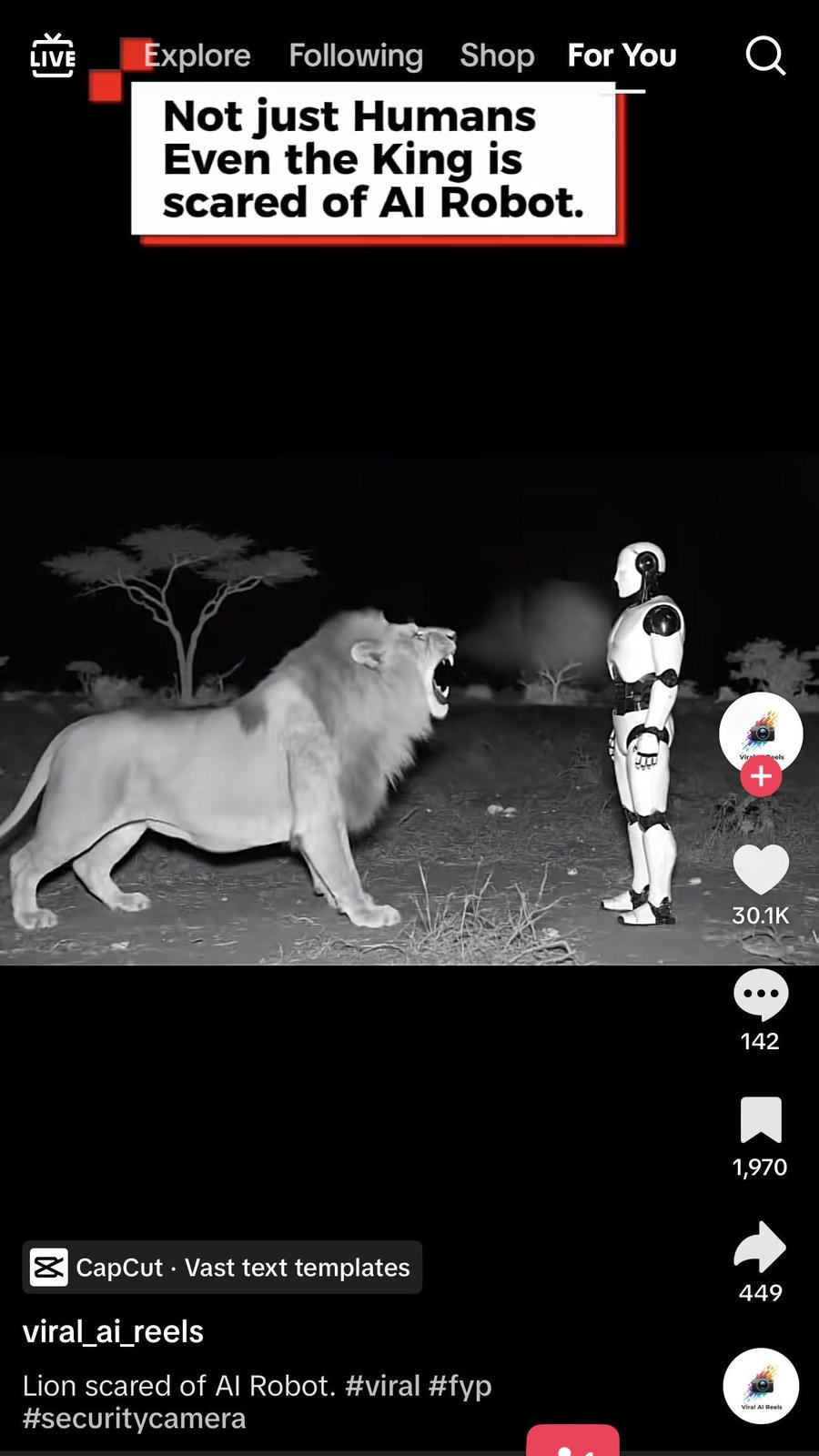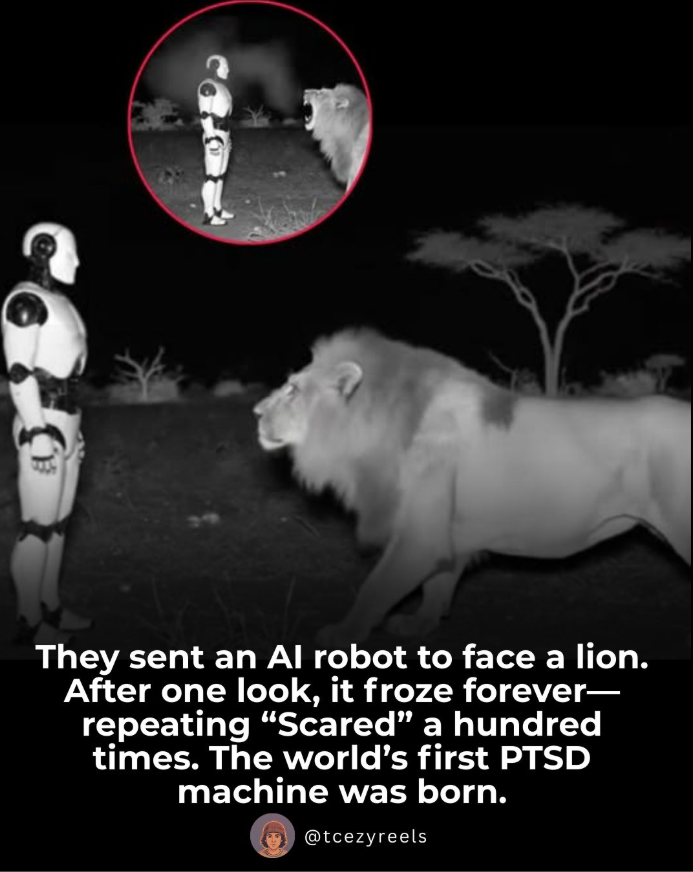
Is a video of an African lion meeting a robot with either one of them being scared authentic? No, that's not true: The original version of the viral video includes a Veo3 watermark in the lower right corner, indicating it was made with Google's artificial intelligence tool. The caption on the video claims the lion was "scared" of the robot. Still images from the fake video have been used to promote a story about an AI company losing "a half million dollars and nearly eight months of work" because their prototype robot became frozen by fright in the encounter. There is no evidence to support that claim.
The video (archived here) was posted by the viral_ai_reels TikTok account September 3, 2025. The video was titled "Lion scared of AI Robot," while caption on the video read:
Not Just Humans Even the King is Scared of AI Robot
This is what the post looked like on TikTok at the time of writing:
(Source: TikTok screenshot taken on Sun Sep 7 20:47:42 2025 UTC)
(Source: screenshot of TikTok by Lead Stories)
While the context of the video -- a lion and robot meeting in the wild -- may cause suspicion it is fake, the watermark in the lower-right corner confirms it was created with Google's VEO3 AI tool.
(Source: screenshot of TikTok by Lead Stories)
Josh Woodward, Vice President with Google Labs and Google Gemini, announced the addition of the visible VEO3 watermark in an X post on May 30, 2025:
One last thing: We've also added visible watermarks to all videos, except for videos from Ultra members in Flow. This is a first step as we work to make our SynthID Detector available to more people in parallel.
One last thing: We've also added visible watermarks to all videos, except for videos from Ultra members in Flow. This is a first step as we work to make our SynthID Detector available to more people in parallel.
-- Josh Woodward (@joshwoodward) May 30, 2025
Screenshots from the video, with the VEO3 watermark cropped out, have appeared on Facebook and other platforms, along with a different narrative of what was happening in the scene. A post (archived here) on Facebook shared on September 6, 2025, carried a caption that read:
They sent an AI robot to face a lion. After one look, it froze forever -- repeating "Scared" a hundred times. The world's first PTSD machine was born.
This is what the post looked like at the time of writing:
(Source: screenshot of Facebook by Lead Stories)
The full text of the story told in the introduction section of the fake image read:
Lion costs leading AI company half a million after risky experiment. In Africa, researchers pushed the limits of AI by sending their prototype robot face to in face with a lion.
Before the trial, the machine had been prepped with hundreds of animal images and books on emotions. It could identify joy, sadness, anger, and fear. On paper, it was flawless. But the moment the lion appeared, the system broke down. The logs showed only:
"Cat big. Scared."
Then it glitched, repeating "scared" more than 100 times until it froze completely. Memory wipes didn't help. The fear was buried so deep that every time the robot saw a four legged creature, from a goat to a house cat, it responded the same way: "No. Scared."
Engineers eventually had to tear out part of its CPU, a fix that cost the company half a million dollars and nearly eight months of work. The experiment ended with the first robot in history diagnosed with PTSD.
Since the lion and the robot are both digital creations by Google's VEO3, we conclude the story about the robot freezing from fear is also fictional.





















